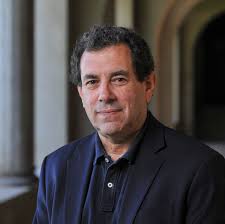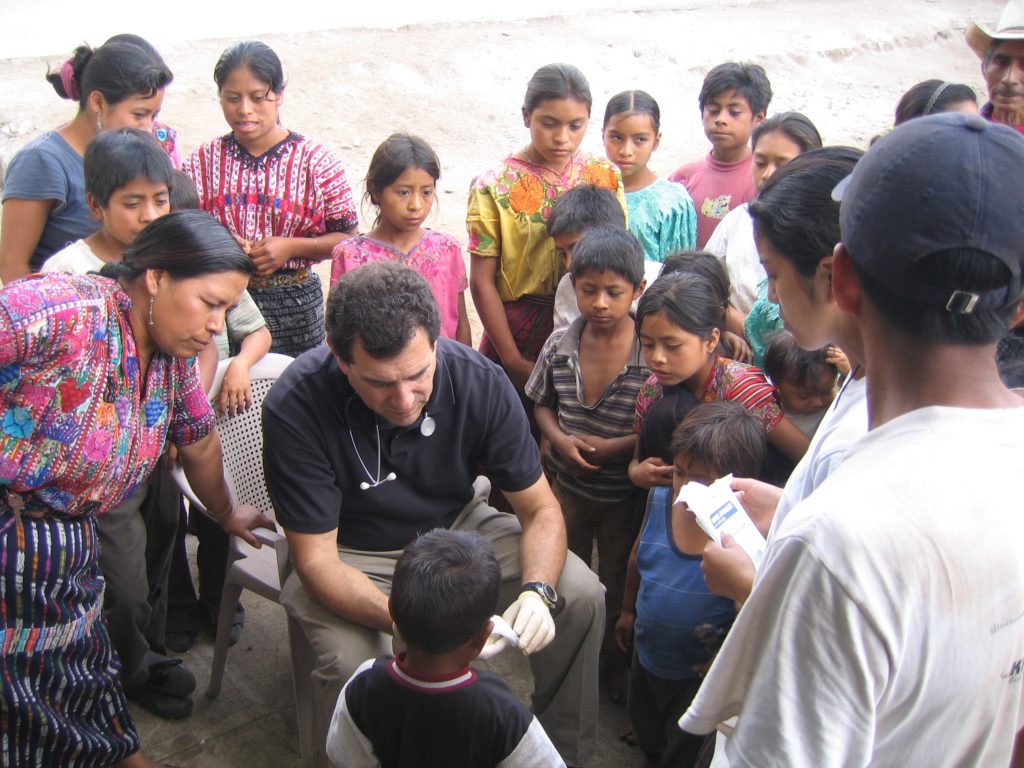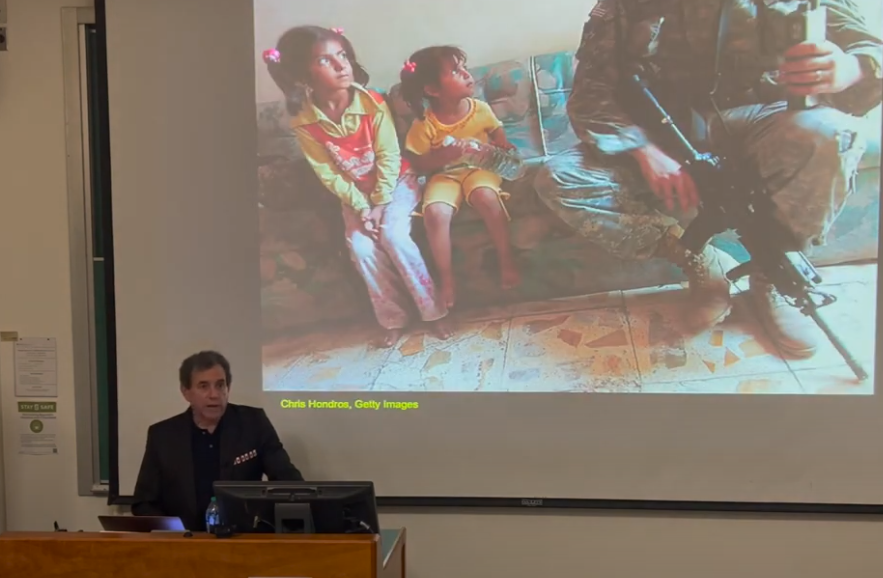Published: 08/22/2022
At a time of increasing violent conflict and geopolitical crises around the world, Stanford pediatrician Dr. Paul H. Wise’s work feels more relevant and necessary than ever. For decades, Wise has responded to some of the world’s most devastating conflicts and researched the ways they impact the most vulnerable – especially refugees, women, and children.

Wise leads the Stanford Children in Crisis Program, the first university-based program to address the needs and improve the health and well-being of children in areas of political instability and civil conflict. The need for this work is great: More than half of the world’s women and children are now living in countries experiencing armed conflict, Wise and colleagues noted in a 2021 Lancet publication on women and children’s health in conflict settings.
“The indirect effects of war – the destruction of the essentials of good governance and the essentials of life – almost always kill more people than the bombs and bullets. This is particularly true for children,” Wise observed. The impacts of conflict on children have become a through-line in his wide-ranging work.
Such was the case this spring and summer, when, with the Ukrainian healthcare system literally under siege, Wise traveled to Poland to join a former student’s efforts to evacuate 1,300 children (to date) with cancer from Ukraine. The initiative placed the children in medical facilities in the European Union while helping the families settle in nearby cities. Wise served as an advisor on the political aspects of the evacuation. A publication on this effort will be published soon in The Lancet Haematology.
The indirect effects of war – the destruction of the essentials of good governance and the essentials of life – almost always kill more people than the bombs and bullets. This is particularly true for children.
Paul H. Wise
Then, as ongoing conflict and violence in many Central and South American countries continue to spur migration to the U.S. border, Wise this August stepped into an expanded position monitoring U.S. migrant detention centers to help ensure detained children’s rights and wellbeing.
Also this year, as increasing global conflict makes war zones more vulnerable to disease outbreaks, Wise is co-leading a series of publications by the American Academy of Arts & Sciences rethinking humanitarian health service in some of the world’s most violent places.
We spoke with Wise about his path to this work, what sustains him through these challenging tasks, and some of his recent initiatives.
What led you to this work at the nexus of children’s health, politics, and conflict?
In a way, it all began with sharks. A high school fascination with sharks led me to pursue biology and a pre-medicine track when I went to college at Cornell University. But once I was in college, shark biology began to feel less relevant to what was happening in the real world.
Then, during the summer after my freshman year, I saw the harsh realities many communities face when I traveled to the rural highlands of Guatemala. Working in a hospital ward there, I saw many children who were severely malnourished through no fault of their families, but rather through shortcomings in the political and health care systems destabilized by decades of civil war. After this, I decided to switch majors and focus on Latin American studies while also pursuing a pre-med path.
These experiences in Guatemala and subsequent political studies shaped my career as a doctor. For nearly 50 years, I’ve continued to work in Guatemala to provide medical care, conduct research, and build the capacity of the local health care system. I’m a researcher and so I come at this with an analytic frame — but with a deep humanitarian commitment to some of the most vulnerable kids in the world, driven by my first-hand experiences.

Many Central and South American children fleeing violence in places like Guatemala have suffered doubly when they’ve been forced to stay in U.S. detention facilities. How is your role as the only court-appointed special observer to these facilities evolving to meet changing conditions at the border?
The scale of the challenge is huge and growing. Last year, 150,000 kids traveling alone were brought into detention, along with another 300,000 kids traveling with family.
Since 2019, my role has been to visit these detention facilities near the border and develop independent reports for the Federal Court overseeing the wellbeing and the treatment of these kids.
Now, as of August 10, my role has been formalized within a new agreement between the Biden administration and the class action lawyers representing the kids. This new Flores agreement stipulates much-improved standards of care and expands requirements for custodial conditions and specific procedures the government must provide. Part of the agreement is based on my presence as an independent Juvenile Care Monitor, reporting directly to the court and assessing the government’s compliance with the agreement.
Having dedicated much of your professional life to serving children, how did your own experience of becoming a parent of three children impact your work?
My experience was double-edged, which created some tension in how I tried to navigate it. Becoming a parent enhanced my compassion — even distress — at what I was dealing with in the real world. The task has always been to translate this intense compassion into purposeful action. Having children made this both harder and more important.

However, becoming a parent also made me far more risk-averse. While I am willing to accept more risk than many, I felt an enormous responsibility to be present and provide a caring home for our children with my wife, Janice. When my son and older daughter were born (22 months apart), I was working in Guatemala. The civil war there was heating up and an American priest was murdered in the town next to where I was working. Before becoming a dad, this would not have stopped me from spending time there. However, with two small kids at home, I stopped traveling to Guatemala until things calmed down a bit. I remained somewhat risk-averse until all three of my kids were off to college, when I began making trips to places like the eastern provinces of the Democratic Republic of Congo, Iraq, Lebanon, and the West Bank.
Your experience in such places was recently put to use in an unfolding series on rethinking humanitarian aid in conflict zones. One publication you edited is a case study of the response to the 2018 ebola epidemic in the Democratic Republic of Congo. It examines how the World Health Organization’s emergency health response collided with ongoing UN peacekeeping efforts, having a profound negative effect on both undertakings. What lessons can the international community learn from this response for managing future multidimensional emergencies?
The World Health Organization was trying to bring humanitarian relief to an area that, for the last 40 years, has been racked by extreme violence and a complete lack of state governance. This has different requirements than bringing Ebola services to Ghana or Zambia or Botswana, which is exactly where most academic university- based global health programs like to work. Most programs don’t like going to places like the DRC, Somalia, and Syria because of the danger, and because of the high risk that expenditures of time and money won’t pay off in such an unstable setting.
But when you go to Eastern Congo, you need to have an exquisite understanding of the local politics and what we would call the portfolios of violence: how different groups use violence to further political aims. The failures identified in the report resulted from a lack of understanding. It’s not easy. These portfolios of violence are not always transparent, and conditions change quickly.
The best thing to do in these situations is to find independent partners on the ground who’ve been working in these areas, know the scene, understand these portfolios of violence, and are considered legitimate. Tapping into local knowledge and leadership is essential. Even when state governance is weak or corrupt, there are other forms of governance that may not be obvious to a foreign newcomer. It is important to seek the guidance of tribal leaders, village elders, and religious organizations.
With so many ongoing, devastating conflicts in the world, how do you buffer yourself against the emotional toll of witnessing this protracted suffering?
I’ve had decades of experience working in really sad places. I’ve been working in the highlands of Guatemala for 50 years, where childhood malnutrition has been the primary driver of death and mortality. I was in Iraq just after the battle of Mosul and was present during conflict in Eastern Congo, the West Bank, Lebanon, and now the border of Ukraine.
But that experience — it’s not really protection against what one witnesses. Most of the protection comes from dealing with the people themselves. I get enormous energy and support from the kids I talk to in detention facilities and from these unbelievably resilient families — for instance, the Ukrainian families evacuating their kid with serious cancer from a bombed-out village to go a new country that can offer better health care and a better life.